Hot Water Heater Repair – Georgetown, TX
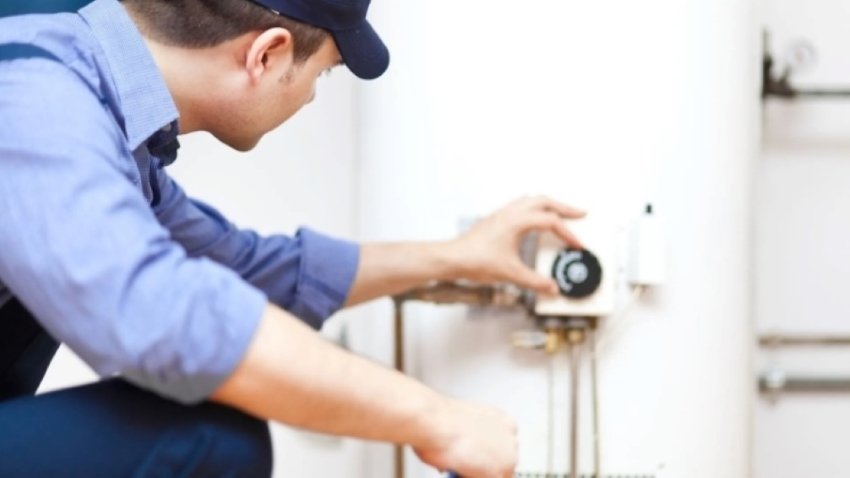
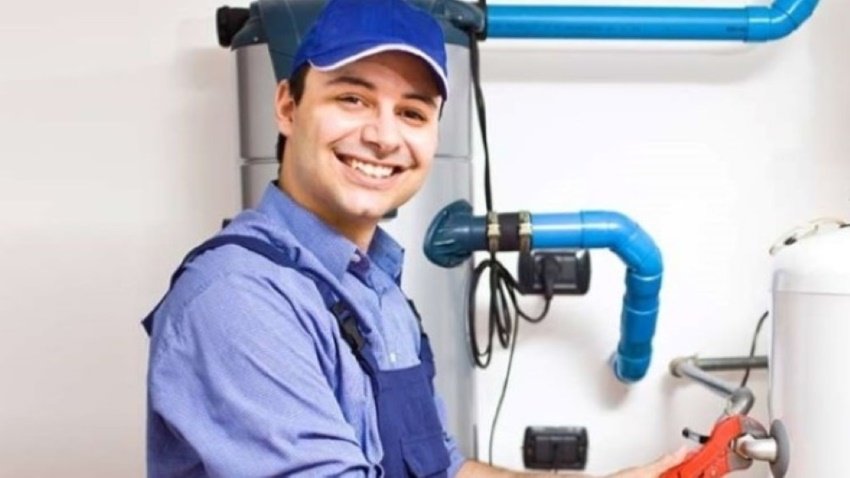
CALL FOR A FREE ESTIMATE
Remote Diagnostic Tools in Hot Water Heater Repair
With advancements in technology, remote diagnostic tools have become invaluable assets in the field of hot water heater repair. These tools enable technicians to assess issues, diagnose problems, and streamline repair processes without the need for physical presence. Here’s a closer look at how remote diagnostic tools are revolutionizing hot water heater repair:
1. Smartphone Apps and IoT Integration:
– Smartphone apps and IoT (Internet of Things) devices allow homeowners to monitor their hot water heaters remotely, providing real-time data on performance metrics, temperature settings, and energy consumption.
– Technicians can remotely access this data to identify irregularities, diagnose potential issues, and provide initial troubleshooting guidance to homeowners.
2. Remote System Monitoring:
– IoT-enabled sensors installed in hot water heaters continuously monitor key parameters such as temperature, pressure, and energy usage.
– Plumbers near me can remotely access this monitoring data to detect anomalies or deviations from normal operating conditions, enabling proactive intervention before problems escalate.
3. Diagnostic Algorithms and Analytics:
– Advanced diagnostic algorithms analyze data collected from sensors and systems to identify patterns, trends, and potential failure modes.
– Plumbers close to me leverage these analytics to pinpoint underlying issues, predict component failures, and prioritize repair actions based on criticality and urgency.
4. Video Conferencing and Virtual Inspections:
– Video conferencing tools allow technicians to conduct virtual inspections and assessments of hot water heater systems, guided by homeowners or on-site assistants.
– Through live video feeds, technicians can visually inspect components, observe system behavior, and interact with homeowners to gather additional information.
5. Remote Control and Adjustment:
– Some hot water heaters feature remote control capabilities, allowing technicians to adjust temperature settings, activate diagnostic modes, or perform system resets remotely.
– This enables technicians to implement corrective actions, test system responses, and fine-tune settings without the need for physical access to the unit.
6. Data Logging and Historical Analysis:
– Remote diagnostic tools store historical data and logs of system performance, faults, and maintenance activities over time.
– Technicians can review these logs to track changes, identify recurring issues, and assess the effectiveness of previous repairs or adjustments.
7. Predictive Maintenance Alerts:
– Remote diagnostic systems can generate predictive maintenance alerts based on analysis of performance data and historical trends.
– Technicians receive notifications of potential issues or impending failures, allowing them to schedule proactive maintenance visits and preemptively address problems before they disrupt hot water supply.
8. Integration with Service Management Platforms:
– Remote diagnostic tools seamlessly integrate with service management platforms used by plumbing contractor, enabling automatic ticket generation, scheduling, and assignment of repair tasks.
– This streamlines workflow management, enhances communication between technicians and dispatchers, and accelerates response times for repair requests.
9. Customer Engagement and Education:
– Remote diagnostic tools foster greater transparency and engagement with homeowners by providing visibility into system status, diagnostic findings, and repair actions.
– Technicians can use this opportunity to educate homeowners on proper maintenance practices, system operation, and energy-saving tips to maximize the lifespan and efficiency of their hot water heaters.
10. Continuous Improvement and Feedback Loop:
– Remote diagnostic tools facilitate continuous improvement by capturing feedback from technicians and homeowners, identifying areas for optimization or enhancement in diagnostic algorithms, system functionality, or user experience.
– Plumbing companies can leverage this feedback loop to refine their remote diagnostic capabilities, improve service delivery, and enhance customer satisfaction over time.
By leveraging remote diagnostic tools in hot water heater repair, technicians can expedite troubleshooting, minimize downtime, and deliver more efficient and effective repair services to homeowners. These tools empower technicians with actionable insights, enable proactive maintenance strategies, and enhance collaboration between service providers and customers for better outcomes in hot water heater repair.
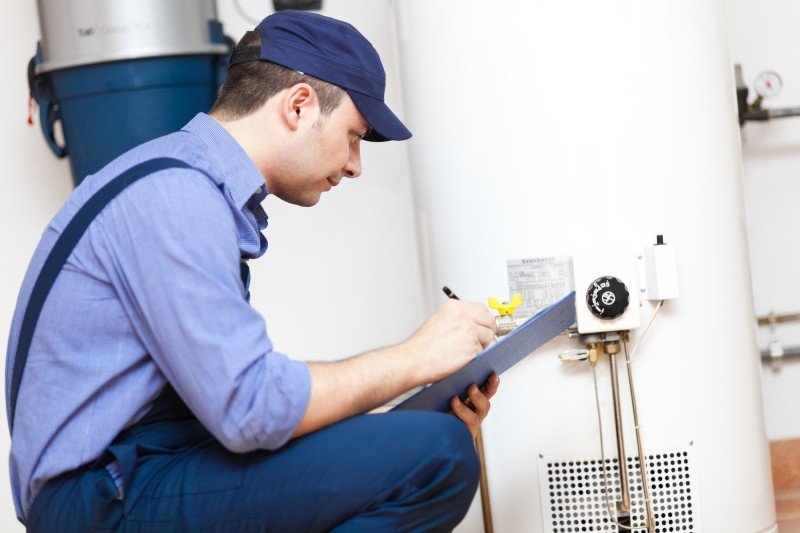
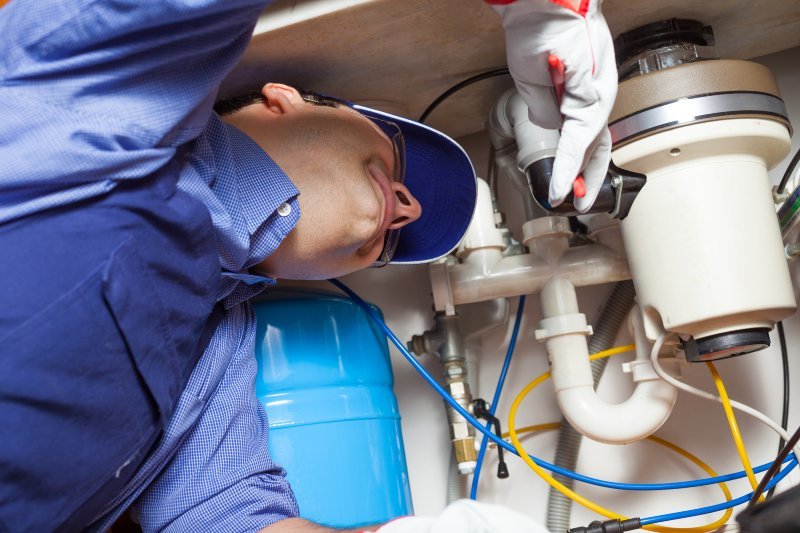
Emergency Hot Water Heater Repair Services: Ensuring Rapid Response and 24/7 Availability
When a hot water heater fails unexpectedly, homeowners rely on emergency repair services to restore hot water quickly and minimize disruption to daily routines. Here’s how plumbing companies ensure rapid response and 24/7 availability for emergency hot water heater repair:
1. Dedicated Emergency Hotline:
– Plumbing company maintain a dedicated hotline or emergency contact number that homeowners can call to report hot water heater emergencies outside of regular business hours.
– Trained operators or dispatchers manage the hotline and prioritize emergency calls for immediate response.
2. 24/7 Availability:
– Emergency hot water heater repair services operate 24 hours a day, seven days a week, including weekends, holidays, and after-hours periods.
– Technicians are on call and ready to respond to emergency repair requests promptly, regardless of the time of day or night.
3. Fast Response Times:
– Local plumber company commit to fast response times for emergency hot water heater repair requests, typically aiming to arrive at the customer’s location within a specified timeframe, such as one hour or less.
– Efficient dispatching, strategic placement of service vehicles, and optimized scheduling help minimize travel time and ensure rapid on-site assistance.
4. Strategic Resource Allocation:
– Plumbing companies allocate resources strategically to ensure adequate coverage and capacity for emergency repair services.
– This may involve staffing additional technicians during peak demand periods, maintaining a fleet of fully equipped service vehicles, and optimizing route planning to minimize response times.
5. Advanced Scheduling Systems:
– Plumbing companies utilize advanced scheduling systems and dispatching software to manage emergency repair requests efficiently.
– Dispatchers can quickly assign repair tasks to available technicians based on proximity, skillset, and workload, ensuring optimal resource utilization and minimizing delays.
6. Emergency Response Training:
– Technicians undergo specialized training in emergency response protocols, safety procedures, and rapid repair techniques for hot water heater systems.
– They are equipped with the skills and knowledge needed to assess emergencies quickly, implement temporary fixes if necessary, and perform permanent repairs efficiently.
7. Fully Stocked Service Vehicles:
– Service vehicles are stocked with a comprehensive inventory of replacement parts, tools, and equipment commonly used in hot water heater repair.
– This allows technicians to address a wide range of issues on the spot, without the need for multiple trips or delays due to missing components.
8. Priority Scheduling for Emergencies:
– Emergency repair requests are given top priority in the scheduling queue, ahead of non-urgent service calls or routine maintenance appointments.
– Dispatchers coordinate with homeowners to schedule emergency repair visits at the earliest available time slot, accommodating their schedules and minimizing wait times.
9. Clear Communication with Customers:
– Plumbing companies maintain clear and transparent communication with customers throughout the emergency repair process.
– Dispatchers provide regular updates on the status of repair requests, estimated arrival times for technicians, and any unforeseen delays or changes to the schedule.
10. Follow-Up and Quality Assurance:
– After completing emergency hot water heater repairs, plumbing companies conduct follow-up checks to ensure the problem has been resolved satisfactorily.
– Quality assurance measures may include post-repair inspections, customer satisfaction surveys, and warranties on parts and labor to guarantee the effectiveness and reliability of the repairs.
By offering rapid response and 24/7 availability for emergency hot water heater repair services, plumbing companies demonstrate their commitment to customer satisfaction and their ability to deliver timely solutions to critical issues. This ensures that homeowners have access to reliable hot water when they need it most, restoring comfort and convenience to their homes without delay.
Hot Water Heater Repair vs. Replacement: Decision-Making Factors and Cost Considerations
Determining whether to repair or replace a hot water heater involves evaluating various factors, including the extent of damage, the age of the unit, energy efficiency, and long-term cost considerations. Here’s a comprehensive guide to help homeowners make an informed decision:
1. Extent of Damage:
– Assess the severity of the issue affecting the hot water heater. Minor problems such as a faulty thermostat or a leaking valve may be repairable, while major issues like a corroded tank or a failing heating element could necessitate replacement.
2. Age of the Unit:
– Consider the age of the hot water heater. As units approach or exceed their expected lifespan (typically 8-12 years for traditional tank-style heaters and 10-20 years for tankless models), repairs may become more frequent and less cost-effective.
3. Repair Costs vs. Replacement Costs:
– Compare the cost of repairs with the cost of purchasing a new hot water heater. If the repair costs are significantly lower than the cost of replacement and the unit is relatively new, repairing may be the more economical choice in the short term.
4. Energy Efficiency:
– Evaluate the energy efficiency of the existing hot water heater. Older units may be less efficient and consume more energy, leading to higher utility bills over time. Newer models with higher Energy Factor (EF) ratings offer improved efficiency and lower operating costs.
5. Performance and Reliability:
– Consider the overall performance and reliability of the hot water heater. If the unit has a history of frequent breakdowns, inconsistent hot water supply, or declining performance, replacement may offer greater reliability and peace of mind.
6. Warranty Coverage:
– Check whether the hot water heater is still under warranty. Repairing a unit that is covered by warranty may be more cost-effective than replacing it, as parts and labor may be fully or partially covered by the manufacturer.
7. Future Maintenance Requirements:
– Anticipate future maintenance requirements and repair costs. If the hot water heater is nearing the end of its lifespan or requires frequent repairs, investing in a new, more reliable unit may offer long-term savings and reduce the hassle of ongoing maintenance.
8. Energy Savings and Rebates:
– Consider potential energy savings and rebates available for upgrading to a more energy-efficient hot water heater. High-efficiency models, such as ENERGY STAR-certified units, may qualify for utility rebates or tax incentives, offsetting the initial cost of replacement.
9. Space and Installation Considerations:
– Evaluate whether the existing space and infrastructure are compatible with a new hot water heater. Tankless models, for example, require adequate ventilation and may require modifications to the plumbing system or electrical wiring.
10. Overall Value and Return on Investment:
– Take into account the overall value and return on investment (ROI) of repairing versus replacing the hot water heater. While repairs may offer short-term savings, investing in a new, energy-efficient unit can provide greater long-term value, comfort, and reliability.
Ultimately, the decision to repair or replace a hot water heater depends on a combination of factors unique to each situation. Homeowners are encouraged to consult with qualified plumbing professionals to assess their specific needs, evaluate available options, and make an informed decision that aligns with their budget, preferences, and long-term goals.
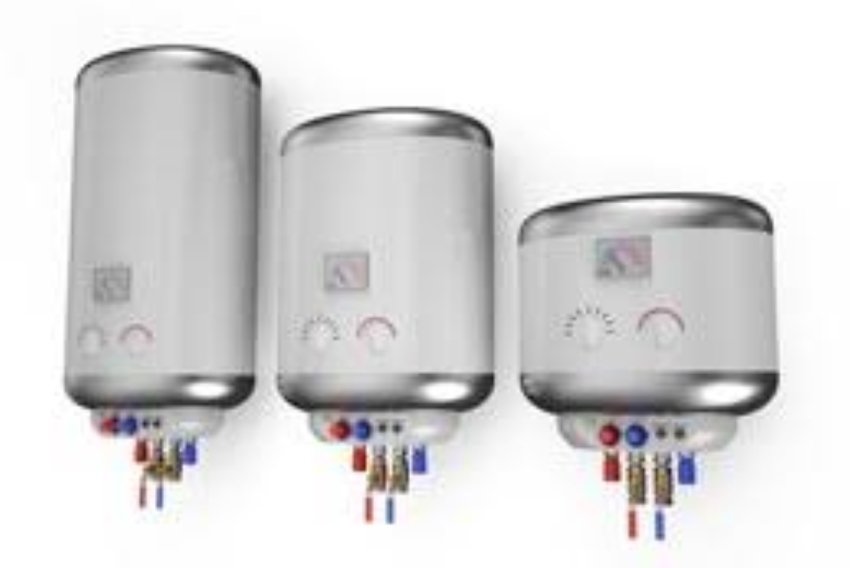
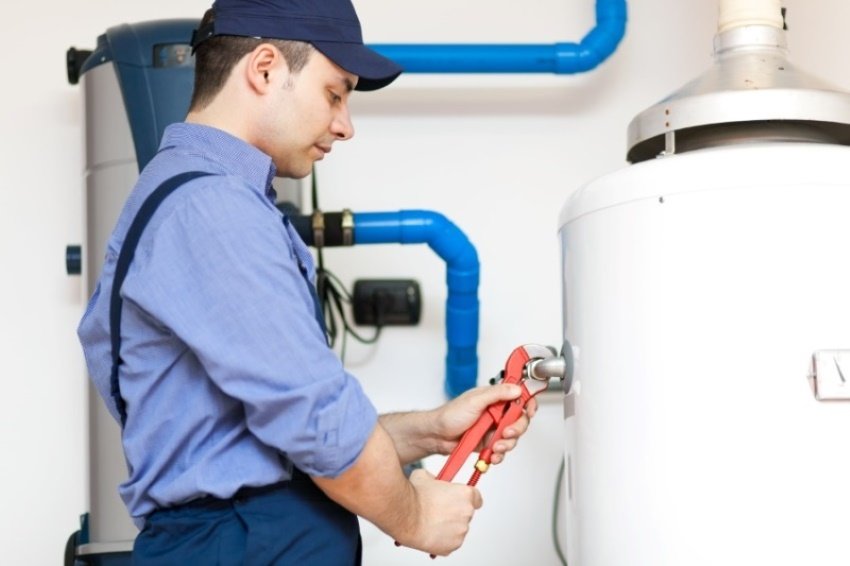
Innovative Materials and Techniques in Hot Water Heater Repair
As technology evolves, so do the materials and techniques used in hot water heater repair. Plumbing professionals are continually adopting innovative solutions to enhance efficiency, durability, and performance. Here’s a look at some of the latest advancements in materials and techniques for repairing modern hot water heater systems:
1. Composite Tank Linings:
– Composite materials, such as epoxy coatings or glass linings, offer superior corrosion resistance and durability compared to traditional metal tank linings.
– Plumbing technicians apply composite tank linings to repair corroded or deteriorated tank interiors, extending the lifespan of the hot water heater and preventing future leaks or failures.
2. Corrosion-Resistant Alloys:
– High-performance alloys, such as stainless steel or titanium, are increasingly used in hot water heater components to resist corrosion and extend service life.
– Replacement parts made from corrosion-resistant alloys, such as heating elements or sacrificial anode rods, provide enhanced durability and reliability in aggressive water conditions.
3. Polymer Drain Pans:
– Polymer drain pans offer a lightweight and corrosion-resistant alternative to traditional metal drain pans.
– Plumbing technicians install polymer drain pans beneath hot water heaters to capture and divert leaks, preventing water damage to surrounding surfaces and structures.
4. Flexible Piping Solutions:
– Flexible piping materials, such as PEX (cross-linked polyethylene) or flexible stainless steel tubing, offer versatility and ease of installation in hot water heater repair projects.
– Plumbing technicians use flexible piping solutions to replace rigid or corroded piping, improving system reliability and minimizing potential leak points.
5. Tankless Water Heater Descaling Solutions:
– Innovative descaling solutions, such as environmentally friendly descaling agents or mechanical descaling devices, remove mineral deposits and scale buildup from tankless water heater components.
– Plumbing technicians perform routine descaling maintenance to optimize performance and efficiency, ensuring uninterrupted hot water supply.
6. Non-Invasive Leak Detection Technologies:
– Non-invasive leak detection technologies, such as acoustic sensors or thermal imaging cameras, enable plumbing technicians to pinpoint hidden leaks in hot water heater systems without invasive inspections.
– By detecting leaks early, these advanced technologies prevent water damage and minimize repair costs for homeowners.
7. Laser Welding for Tank Repairs:
– Laser welding techniques allow plumbing technicians to perform precise and durable repairs on damaged hot water heater tanks.
– Laser welding creates strong, leak-proof seals, restoring structural integrity and extending the lifespan of the hot water heater without the need for tank replacement.
8. Remote Monitoring and Diagnostics:
– Remote monitoring systems integrate IoT (Internet of Things) technology to provide real-time monitoring and diagnostics of hot water heater performance.
– Plumbing technicians remotely access system data, identify issues, and troubleshoot problems, enabling proactive maintenance and rapid response to emerging issues.
9. Nanotechnology Coatings:
– Nanotechnology coatings, applied to heating elements or tank surfaces, offer enhanced corrosion resistance, heat transfer efficiency, and scale prevention properties.
– Plumbing technicians apply nanotechnology coatings during hot water heater repairs to improve system performance and prolong component lifespan.
10. Smart Repair Kits and DIY Solutions:
– Smart repair kits and DIY solutions provide homeowners with user-friendly tools and materials for addressing minor hot water heater issues.
– These kits may include self-adhesive patches, sealants, or repair tapes designed to temporarily fix leaks or insulation materials for improving energy efficiency.
By embracing innovative materials and techniques in hot water heater repair, plumbing professionals can deliver superior solutions that enhance system reliability, efficiency, and longevity. These advanced solutions not only address current repair needs but also position hot water heater systems for optimal performance in the future.
Schedule A Free Estimate
Reach Us
Stamped Concrete Contractor ATX
Austin TX
(512) 877-2721
